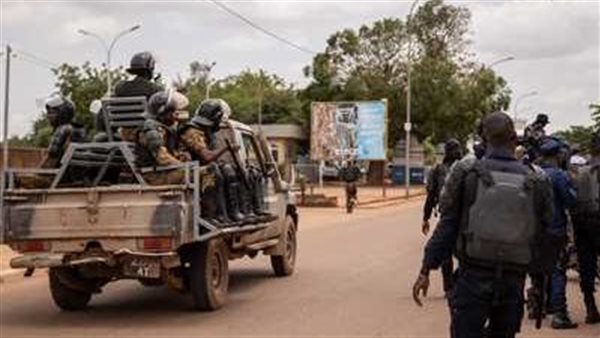After Captain Brahim Traore declared himself the new president and overthrew Lieutenant Colonel Paul Damiba as the head of the nation’s ruling military junta, Lieutenant Colonel Damiba made the decision to submit his resignation on Friday.
The colonel offered to resign in exchange for Traore agreeing a few conditions in order to avoid the detrimental financial, material, and violent impacts that accompany military coups.
Following the nation’s second coup d’état the same year, demonstrators assaulted the French embassy and other facilities in the capital of Burkina Faso. The military leadership then demanded a stop to the disturbance.
The protestors’ attack on police last Saturday was also denounced by the French government, which also denied any role in the ongoing unrest in Ouagadougou’s city.
In the same context, there are worries that the coup, which leaves behind a persistent revolt that has driven two million people into their homes and resulted in thousands of fatalities in recent years, will lead to violent occurrences.
Observers believed that Burkina Faso had joined the Russian sphere of influence after Central Africa and Mali as a result of Traore’s overthrow of Henri Doumeba and the attack on French structures in conjunction with the overthrow of the commander of the artillery unit.
Following a broadcast speech in which the coup leader accused Colonel Dowamba of seeking asylum at a French military base, which was refuted by the French embassy in Ouagadougou, the demonstrators made this action.
Two days after Traore announced his resignation and succeeded him as president, Henry Paul announced his resignation on Sunday. In January, Damiba took office with the pledge to protect the nation from Islamist bloodshed.
For his part, Othman Ouedraogo, a researcher from Burkina Faso, claimed that the coup’s leaders had the support of a “segment of the population, and this segment was the one that came out in the thousands on the first day of the coup and was flying the flags of Russia, and came out again, in reference to the popular resentment that exists in the country against influence.” French.
Analysts claim that in 2017, the Russian approach started when President Faustin-Archange Touadera of the Central African Republic sought asylum in Moscow in order to obtain weaponry and military trainers to bolster the Central African Republic’s army.
Following an attempt by a rebel group to remove Touadira’s government in 2020, the Wagner Group was able to defend his continued rule, increasing the likelihood of Russian involvement in Central Africa. In 2020.
Russia sent weaponry and “Wagner” mercenaries to the Bamako military council, which helped bring Burkina Faso closer to capitulation after the Traore coup.
According to the Africa Center for Studies, Russia’s influence in Africa has grown recently as a result of Moscow’s use of illicit tactics such the use of “Wagner” mercenaries, media and social media campaigns, arms-for-resources agreements, and precious metal trafficking.
In defending its mission and fortifying its presence, civil and political society contributed to Russian acceptance of the African peoples at the national level.
According to Togolese political analyst Mohamed Madi Ghabkatima, Russian propaganda cited the success of “Wagner” in Central Africa in promoting security and stability. It is attempting to replicate this in Mali, and Burkina Faso may join it, so that Russia’s spring will begin in Africa. This led to a popular exit calling for solidarity With Russia for the sake of stability, political matters, and economic improvement, as well as denouncing the French presence.
According to Torshin, the Russian expansion train will not stop at Burkina Faso but will instead travel to other nations, possibly Chad, Niger, Benin, and Togo, where French influence is significantly waning. The Russian expansion train also seeks to establish a youth leadership and depends on Russia for arms deals and training. resources versus security.
An official welcome to the Russian steps and a military takeover. Burkina Faso heated up

